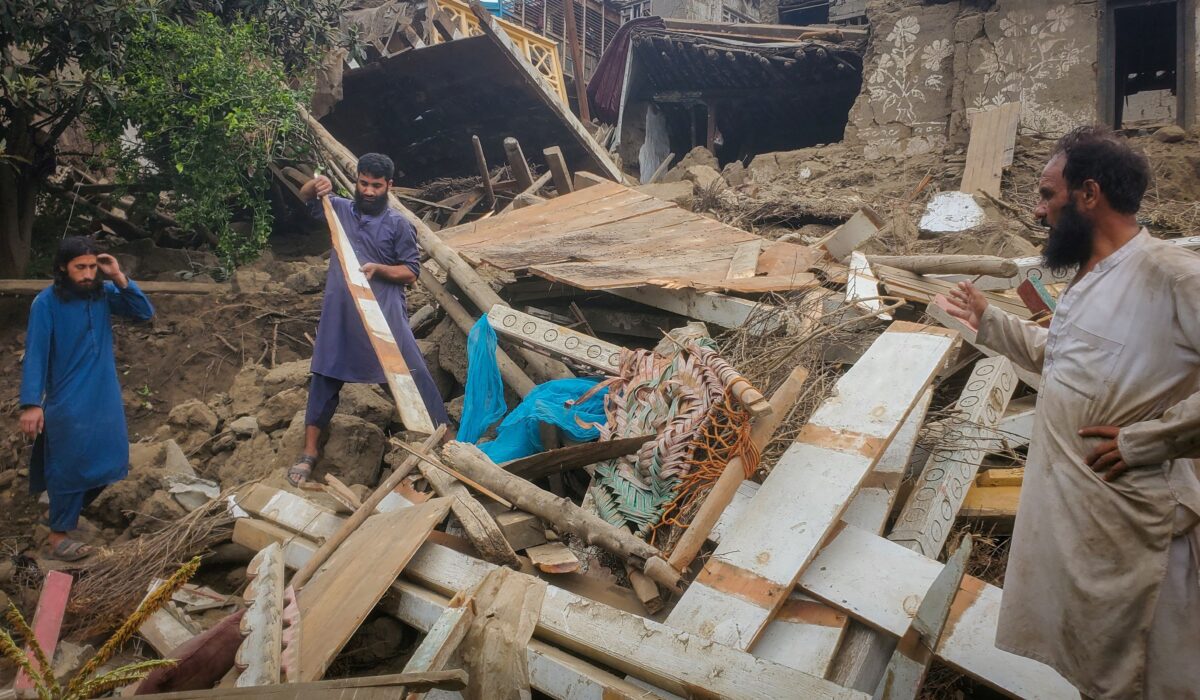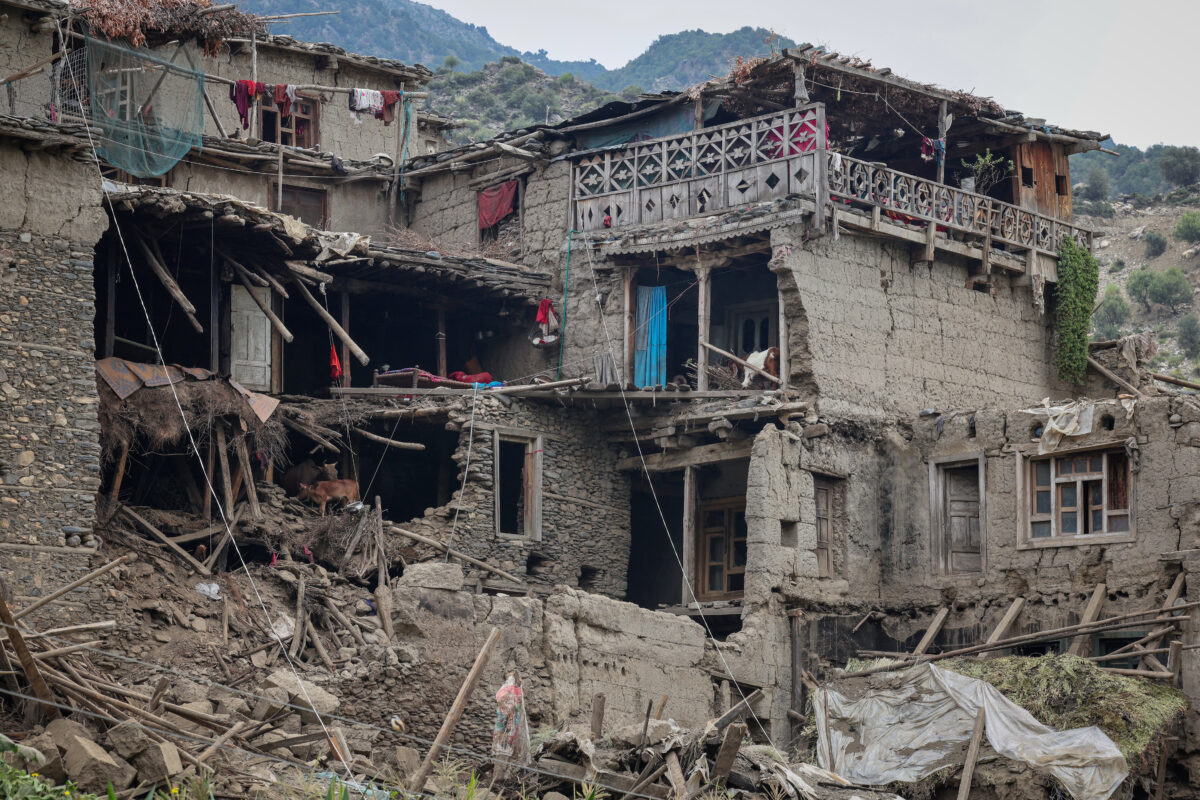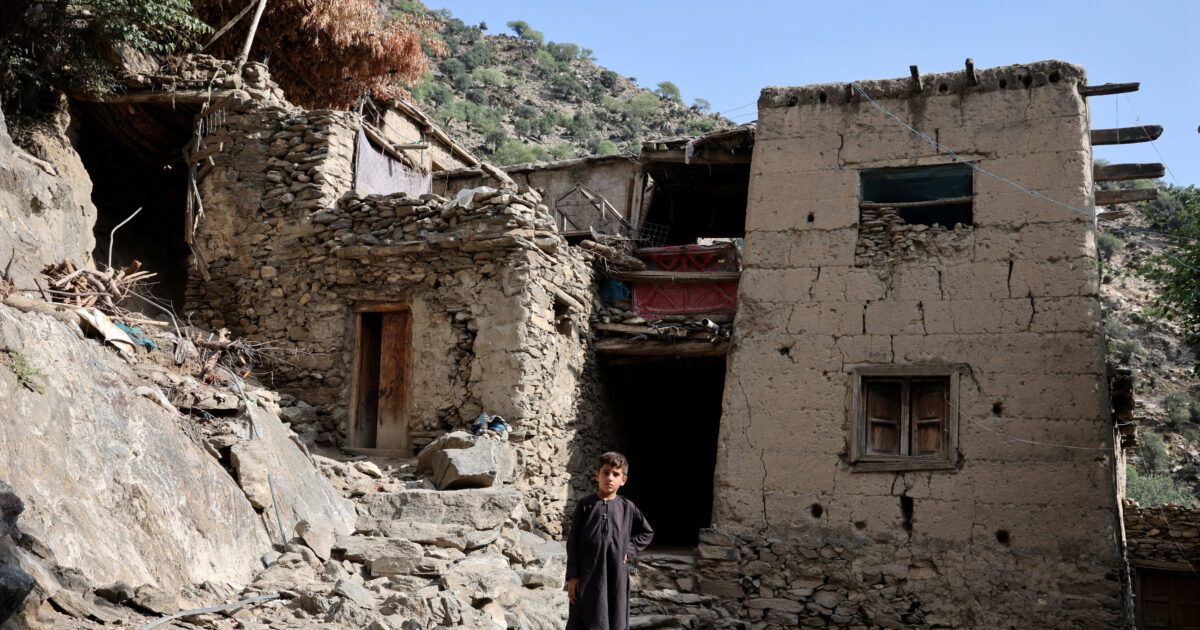Concern to increase victims are caused by the two new aftershocks marked in the east Afghanistan in 12 hours after the strong earthquake 6 Richter that cost the life a few days ago in more than 2,200 people.
The survivors of this earthquake in Afghanistan They try to meet their basic needs, At a time when the UN and other relief organizations warn that there is an urgent need for resources, food, medical supplies and accommodation.
According to a Taliban government announcement yesterday, the earthquake in eastern Afghanistan on Sunday night to Monday have lost 2,205 people and 3,640s were injured.
Eyewitnesses stated that in the Nangarhar province aftershocks are continuouswhile the damage is continued.
Today at dawn there was a 5.4 -degree aftershock to a focal depth of 10 kilometersaccording to GFZ, a few hours after a corresponding earthquake yesterday, Thursday, in the evening.
The initial 6 -degree earthquake was one of the most murderers in Afghanistan and caused extensive damage, mainly in Nangarhar and Kunar provinces.
The effects of the earthquake are even more serious due to the rough construction of houses, from wood and stones that do not protect against earthquakes.


The strong vibration leveled villages in both provinces and destroyed more than 6,700 houses. Rescuers continued to retrieve corpses from debris until yesterday, Thursday.
In Afghanistan there are often strong earthquakes, especially in the Hindu Cous Mountains area where the Eurasian and Indian tectonic plate intersect.
Since 1900, 12 earthquakes have been recorded in the northeast part of the country, according to Brian Baptist seismologist at British Geological Survey.
Resource judgment
Resources to provide emergency assistance to the affected They are particularly limited to Afghanistan, one of the poorest countries in the world with 42 million residents who has received very little help from the international community after this tragedy.
Only Russia recognizes the principles of the Taliban and, after they were in power in 2021, Humanitarian aid to Afghanistan has been dramatically reduced.


Moreover, landslides and debris have closed basic highways, making it difficult to rescue, the World Health Organization (WHO) pointed out, while calling for more resources to provide medical care to those affected.
“Financing gap at least $ 4 million is in danger of causing delays in critical activities,” he said in a statement.
The UN Service He warned of the risk of developing contagious diseases due to the overcrowding in the rough camps created for earthquakesdue to unsafe water and the mismanagement of sewage.
At the same time in Afghanistan, millions of Afghans have been exported from Iran and Pakistan, while thousands of others have been hit by drought in the northern part of the country.
The UN has emphasized that the money it has to provide assistance to the earthquake affected will soon be exhausted and plans to appeal an extraordinary appeal to gather additional resources, according to Kate Carey officials in the organization, responsible for providing humanitarian aid.
